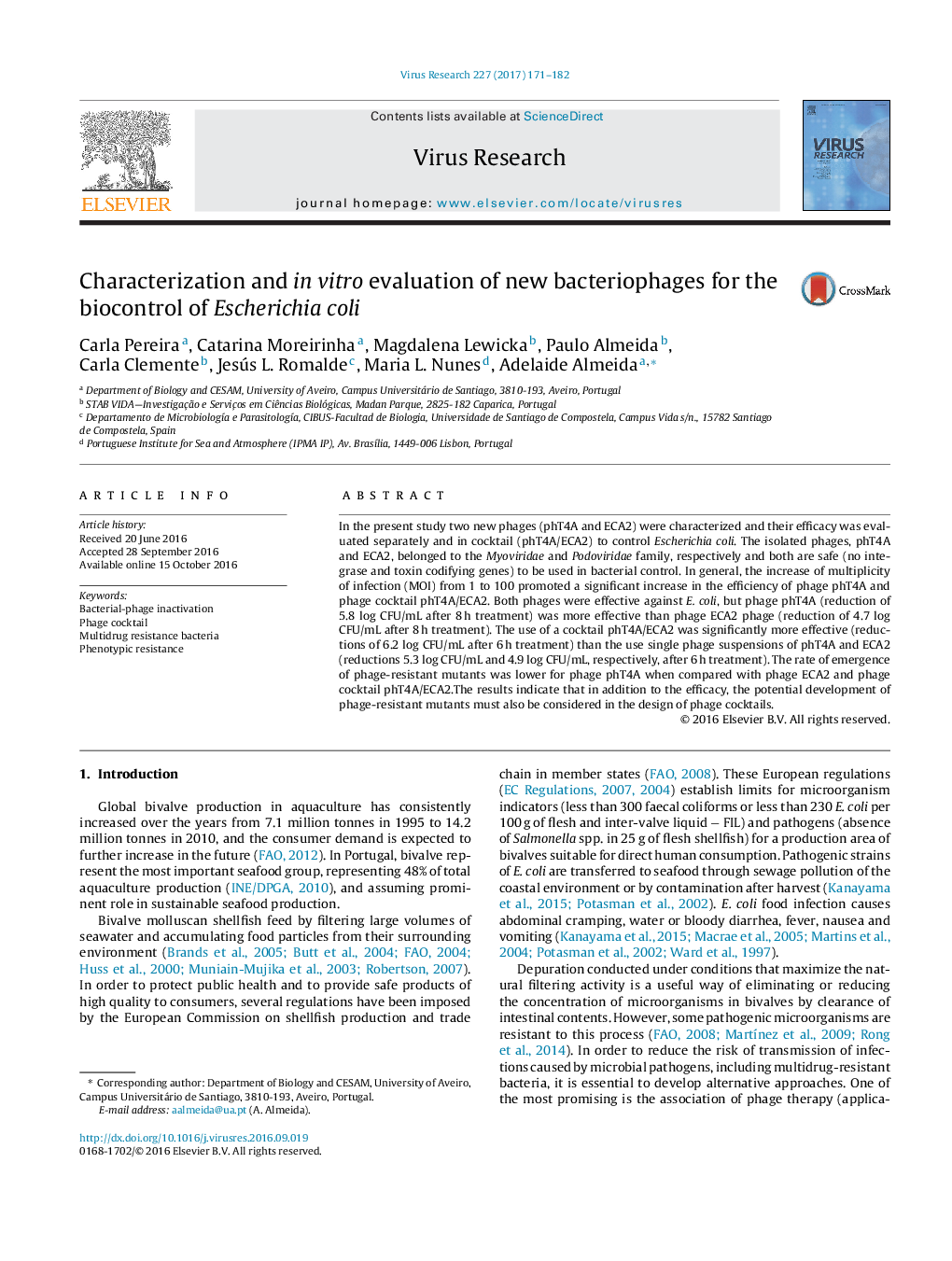| Article ID | Journal | Published Year | Pages | File Type |
|---|---|---|---|---|
| 5675491 | Virus Research | 2017 | 12 Pages |
â¢Phages was applied in the cockles depuration to reduce E. coli.â¢The application of phages can be successfully employed to inactivate E. coli in natural/artificially contaminated cockles.â¢Single phages were more effective than phage cocktail.â¢Depuration using phages increased the decontamination efficiency.
In the present study two new phages (phT4A and ECA2) were characterized and their efficacy was evaluated separately and in cocktail (phT4A/ECA2) to control Escherichia coli. The isolated phages, phT4A and ECA2, belonged to the Myoviridae and Podoviridae family, respectively and both are safe (no integrase and toxin codifying genes) to be used in bacterial control. In general, the increase of multiplicity of infection (MOI) from 1 to 100 promoted a significant increase in the efficiency of phage phT4A and phage cocktail phT4A/ECA2. Both phages were effective against E. coli, but phage phT4A (reduction of 5.8 log CFU/mL after 8Â h treatment) was more effective than phage ECA2 phage (reduction of 4.7 log CFU/mL after 8Â h treatment). The use of a cocktail phT4A/ECA2 was significantly more effective (reductions of 6.2 log CFU/mL after 6Â h treatment) than the use single phage suspensions of phT4A and ECA2 (reductions 5.3 log CFU/mL and 4.9 log CFU/mL, respectively, after 6Â h treatment). The rate of emergence of phage-resistant mutants was lower for phage phT4A when compared with phage ECA2 and phage cocktail phT4A/ECA2.The results indicate that in addition to the efficacy, the potential development of phage-resistant mutants must also be considered in the design of phage cocktails.
